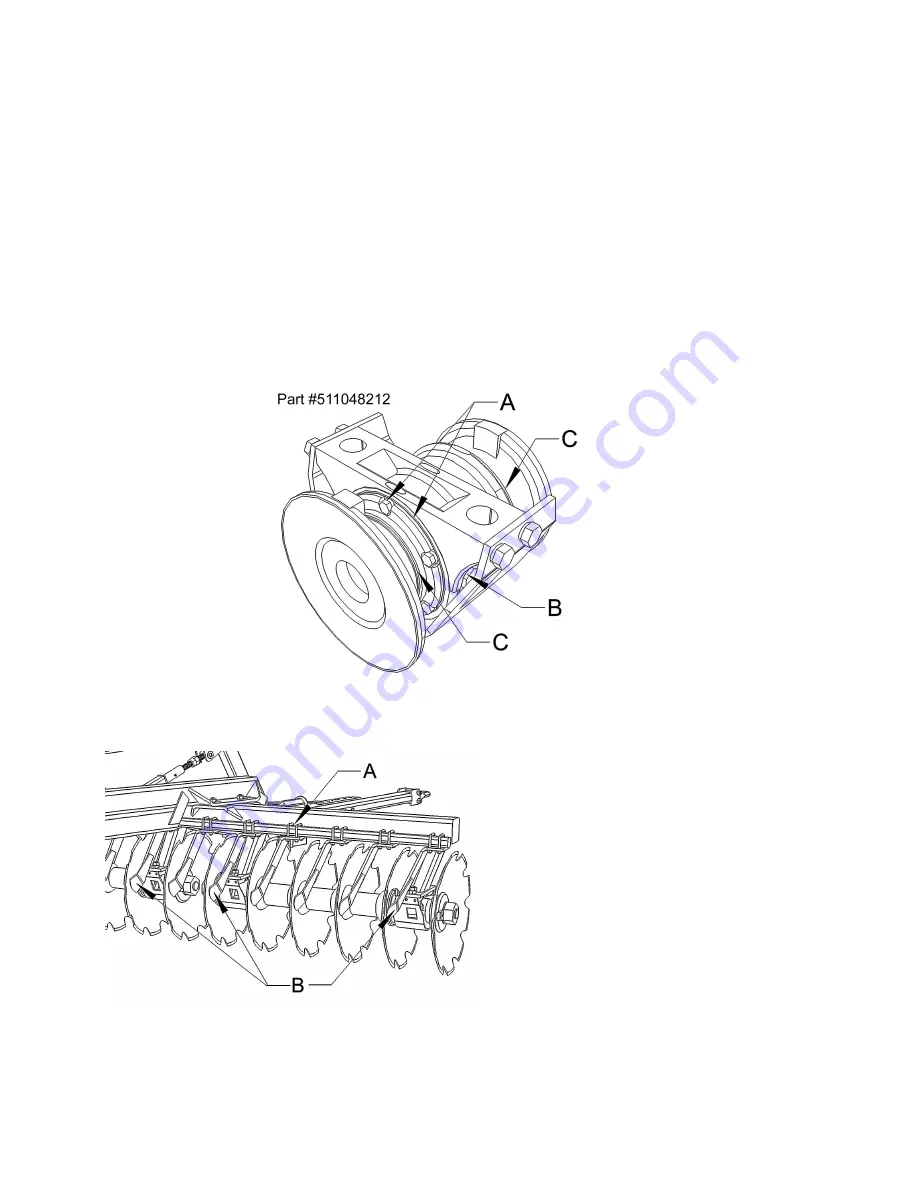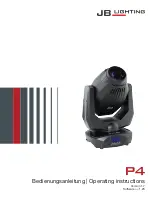
Check the Oil-Bath Bearings
Visually check the oil-bath bearings daily. Oil-bath bearing assemblies can leak oil from three
locations and attention should be paid to these areas.
A
- Oil can seep from between the bearing
housing and the end cap or from around the bolts that hold the end cap to the housing. This condition
is caused by loose bolts or damaged gaskets. Gaskets are placed between the end cap and the
housing to preload the taper bearings in the housing. The solution is to tighten the bolts (30 ft/lbs) or
replace the gaskets.
B
– Oil can seep past the check plugs. Plugs may use a pipe thread. Remove,
clean the threads, apply “pipe dope” or Teflon tape and reinstall.
C
– Oil may seep by the metallic
duo-cone seals. This may be caused by worn seals, loose gang axles or extreme temperature
fluctuations. Worn seals should be replaced immediately to prevent catastrophic bearing failure.
Such a failure will ruin all the other components of the bearing. Loose gang axles can allow the
bearing flanges to move outwards and thereby allow the seals to separate. Be sure to keep gang
axles tight. Because the seals are made of metal, they can expand and contract with extreme
temperature fluctuations. When they contract the sealing surfaces separate and small amounts of oil
can escape. This will normally occur when the disc is in storage. Putting the disc to use will normally
allow the seals to re-seat themselves. Check the oil and add 90W gear oil if necessary.
Adjusting the Scrapers
Adjust the scrapers as close to the disc
blades as possible without touching the
blades. To move a scraper, first loosen the
u-bolts (A) holding it to the scraper bar. Use
a hammer to alternatively tap the top side of
the u-bolts and the scraper itself in the
required direction. Once in position tighten
the u-bolts equally. Turn the blades
occasionally while tightening the u-bolts to
ensure the scraper is not contacting the disk
blade.
In some conditions (e.g. heavy trash or virgin
ground) plugging can occur at the bearings.
Removing the scrapers (B) at these locations
can alleviate the problem.
19
















































